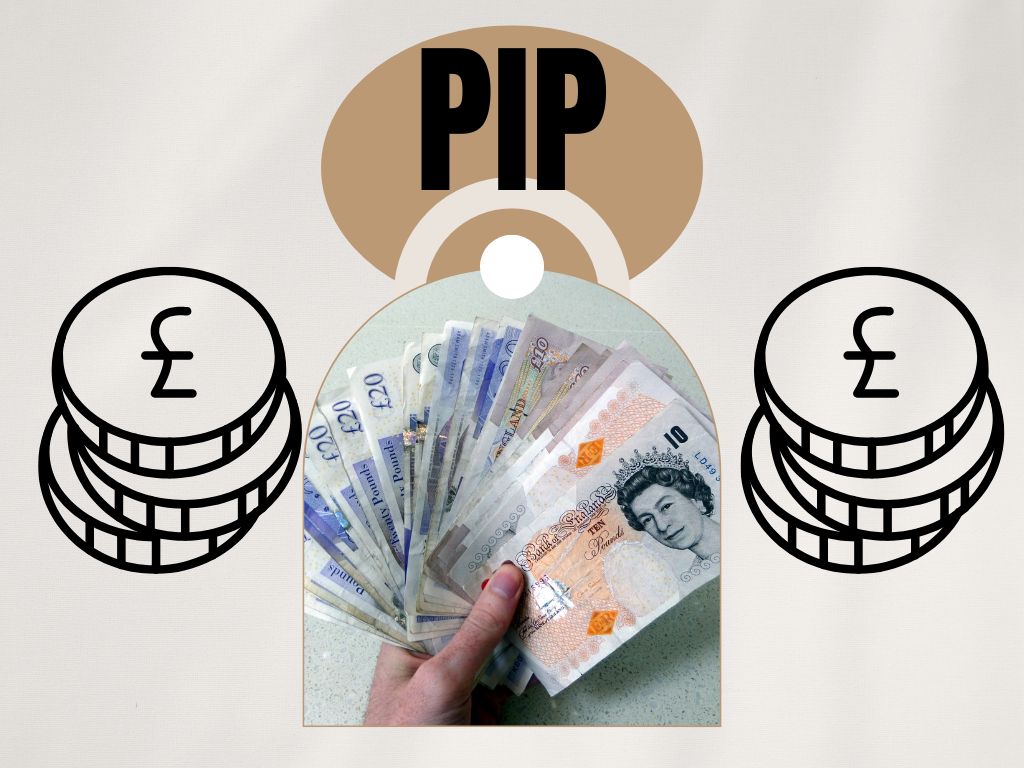This article explores what Personal Independence Payment-PIP is, who is eligible, how to apply, PIP Form Download, and the various factors that determine how much an individual might receive.
UK Personal Independence Payment (PIP)
In the UK, the Personal Independence Payment (PIP) is a crucial welfare benefit designed to help individuals with long-term disabilities or health conditions manage the additional costs they face due to their condition. The PIP provides financial support to those who need assistance with daily living activities or mobility, aiming to improve their quality of life and help them live as independently as possible.
What is Personal Independence Payment (PIP)?

The Personal Independence Payment (PIP) is a state benefit provided by the UK government to people who have a physical or mental health condition or disability that affects their ability to carry out everyday tasks. The main goal of PIP is to assist individuals with the extra costs associated with living with a disability or health condition, enabling them to have greater independence in daily life.
PIP replaced the Disability Living Allowance (DLA) for people aged 16 to 64 in 2013. While DLA is still available for children under 16 and for some people aged 65 and over, PIP has become the primary benefit for working-age adults with long-term conditions.
Types of Support Provided by PIP
PIP provides financial assistance to those who qualify, based on two main components:
Daily Living Component: This part of PIP is for individuals who require help with daily tasks such as eating, washing, dressing, or managing medication. The level of support depends on how difficult it is for the individual to perform these tasks because of their condition.
Mobility Component: This component helps individuals who face difficulties with mobility. It covers issues such as walking, moving around safely, or using public transport. This support is essential for those who struggle with physical movement or face challenges when traveling.
Eligibility for Personal Independence Payment
To be eligible for PIP, individuals must meet certain conditions:
Age Requirements: You must be aged 16 to 64 when you apply. If you’re under 16, you may be eligible for DLA instead. If you’re 65 or older, you are generally not eligible for PIP, though you may be eligible for other benefits such as Attendance Allowance.
Living in the UK: You must live in England, Wales, Scotland, or Northern Ireland. Additionally, you must have been in the UK for at least two of the last three years, unless you are a refugee or have humanitarian protection.
Health Condition or Disability: You need to have a long-term health condition or disability that affects your ability to carry out daily tasks or move around. The condition must have lasted for at least 12 months or be expected to last for at least 12 months. This includes conditions such as mobility impairments, mental health conditions, learning disabilities, and sensory impairments.
Impact on Daily Life: Your condition must significantly impact your daily life, requiring assistance or adjustments in how you go about everyday activities.
Assessment Process: Eligibility is determined through an assessment process, which includes filling out a detailed form and, if necessary, attending a face-to-face assessment. During this assessment, professionals will evaluate how your condition affects your ability to perform various tasks.
How to Apply for PIP?
Applying for PIP involves several steps:
Initial Contact: The application process begins by calling the Department for Work and Pensions (DWP) to request a PIP form. This can be done by calling the PIP helpline. The DWP will then send the form to your address.
Completing the Form: After receiving the form, you’ll need to provide detailed information about your condition, how it affects your daily life, and the level of assistance you need. Be thorough and include any supporting documents such as medical records, letters from healthcare professionals, and relevant evidence about your condition.
Assessment: In some cases, you may be required to attend a face-to-face assessment, though it is not always necessary. The assessment will focus on how your condition impacts your ability to carry out tasks, including how long it takes you to do them and the extent to which you need assistance.
Decision: After the assessment, the DWP will make a decision about whether you qualify for PIP and how much you will receive. If you’re awarded PIP, the letter will also explain the amount of support and which components you qualify for.
How Much Can You Receive from PIP?
The amount of PIP you receive depends on the level of support you need, as determined by your assessment. As of 2025, the rates are:
Daily Living Component:
Standard rate: £68.10 per week
Enhanced rate: £101.75 per week
Mobility Component:
Standard rate: £26.90 per week
Enhanced rate: £71.00 per week
These rates are reviewed and updated regularly, so it’s important to stay informed about any changes. The total amount you receive depends on whether you are eligible for one or both components and at which rate.
